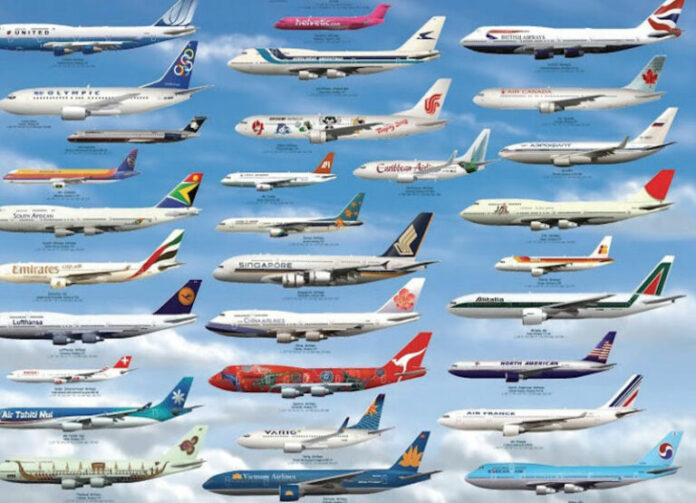How Nigerian Airlines Lost 22 Aircraft to Overseas Maintenance Facilities Due to FX Scarcity
CHIGOZIE AMADI
It has emerged that over 22 aircraft owned by Nigerian airlines cannot return to the country because they have allegedly accrued demurrage and charges that have gone beyond the capacity of the airlines to pay for them, except government intervenes.
It was learnt that the airlines could not bring back their aircraft after maintenance because of the non-availability of foreign exchange at the time they were sent for maintenance.
According to competent industry sources, over two years ago under the administration of President Muhammadu Buhari, Air Peace bided for $14 million dollars to return 15 of its aircraft that were ferried overseas for maintenance after it borrowed money from Nigerian banks at 35 per cent interest rate.
Till date, the money was not paid and 15 aircraft of its aircraft at various maintenance facilities overseas would have returned to the country because maintenance cost was paid.
Also, Arik Air has about six of its aircraft still in maintenance facilities overseas, which may never return back to Nigeria due to costs.
United Nigeria Airlines also bided for foreign exchange at the time Air Peace did and indications show that the airline was also not paid and it has about two or more aircraft at maintenance facilities overseas.
Industry experts say that one of the major challenges Nigerian airlines are facing today is inadequate capacity due to non-availability of seats to meet the demands for domestic flight operations, a situation that has given rise to high demand and subsequently high cost of flight tickets.
Managing Director and CEO of Aero Contractors, Captain Ado Sanusi, expressed doubt that the aircraft will be returned because according to him, it has been long that checks were conducted and completed and the services were not paid for.
“Because the money was not made available to the airlines then, I doubt if they will be able to get the aircraft back. I can imagine how much parking alone would have accumulated on those aircraft. So, the facilities will sell them to recover their money. That is probably what will happen, because I can imagine the parking that would have accumulated over the period of years,” he said.
Since those aircraft were not returned because their services were not paid for due to the money held back at the Central Bank of Nigeria (CBN), Nigerian airlines had resorted to leasing and engage in wet leasing because of the blacklisting of the Nigerian carriers, which limited them to the costly wet leasing that goes with cockpit, cabin crew and maintenance and insurance. However, due to the diligent work done by the Minister of Aviation and Aerospace development, the blacklisted was removed late last year.
Also, since the airlines could not bring their aircraft to join the fleet, operating aircraft fleet in schedule commercial services has reduced to less than 35, which spurs the high cost of fares and also reduced the number of destinations Nigerian airlines fly to.
Sanusi said that Nigerian airlines and Nigerian government are losing a lot of money because airlines can only do wet leasing (Aircraft, Crew, Maintenance and Insurance (ACMI). Under such arrangement so much foreign exchange is taken out of the country and even the airlines are not making much money.
“And that is why the airlines are doing ACMIs. You see a lot of foreign aircraft, foreign crew flying in the country. It is not good for our economy. It is not good for the country. That is wet leasing. I think government should have a deliberate policy in ensuring that a leasing company is domesticated in the country, either through Ministry of Finance or through any of the Ministry’s operations. The company should be incorporated under the supervision of the Ministry. This is to ensure that they are done. They can do it with international banks. They can do it with international financiers, international leasing companies, collaborate with Ministry of Finance and bring in aircraft,” Sanusi advised.
He said that for the aviation industry to move forward, government has to get involved one way or another, noting that it is through government’s intervention that the industry can have a focus and move forward. To put an end to the paucity of operating equipment in Nigeria, Sanusi said government should support and participate in the funding of a leasing company in order to reduce the current capital flight from Nigeria.
Sanusi also noted that without government support or intervening in some ways, the aviation industry anywhere would find it difficult to move forward because the sector is the catalyst of any nation’s economy and therefore cannot be side-lined by government.
According to him, Ethiopian government intervenes in aviation by giving full support to Ethiopian Airlines; the US intervenes by supporting airlines, as it extended credit facility to the country’s airlines after Covid-19.
























